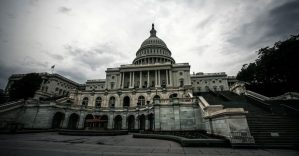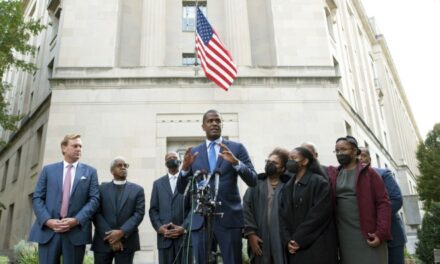By Stacy M. Brown,
NNPA Newswire Senior National Correspondent,
@StacyBrown
The debt ceiling drama and any threats of America defaulting on its obligations have officially ended – at least for two years.
Following successful negotiations between President Joe Biden and House Speaker Kevin McCarthy, and passage in the House, the U.S. Senate voted 63 to 36 to pass the bill.
The measure suspends the country’s more than $31 trillion debt limit through 2025 and avoids a catastrophe that likely would have hurt middle-class and lower-income Americans until 2025.
Among the provisions, non-defense spending would have certain limits, working requirements for those receiving food stamps would go into effect, and the bill would reduce the amount of money earmarked for the IRS to crack down on tax cheaters.
“America can breathe a sigh of relief. Because in this process, we are avoiding default,” Senate Majority Leader Chuck Schumer (D-N.Y.) proclaimed.
“The consequences of default would be catastrophic.”
Senate Minority Leader Mitch McConnell (R-Kentucky), echoed Schumer’s comments.
“Passage of the bill is an urgent and important step in the right direction — for the health of our economy and the future of our country,” McConnell said.
As a condition for voting on the bill quickly, the Senate reviewed and ultimately rejected 11 amendments proposed by various senators.
By reaching this compromise, the Senate could avoid a series of procedural roadblocks that would have required unanimous approval to prevent taking the United States beyond the debt ceiling deadline on June 5.
The debt limit increase does not allow the government to spend more money; instead, it gives the government more time to pay off the debt that both parties have racked up over the years by pushing for more spending and fewer tax revenues.
After a long “pause” that began at the beginning of the pandemic, the bill will resume payments on federal student loans.
In addition, it would force recipients of the Supplemental Nutrition Assistance Program (SNAP) and Temporary Assistance for Needy Families (TANF) to work if they are between 55 and 59.
Currently, work requirements only apply to recipients up to the age of 50.
Veterans, those experiencing homelessness, and young adults (up to 24) aging out of foster care will be exempt from the adjustments to SNAP and TANF.
There would be no Social Security, Medicare, or Medicaid adjustments under the plan.
President Biden vowed to sign the bill on Friday, June 2.
“Senators from both parties voted to protect the hard-earned economic progress we have made and prevent a first-ever default by the United States.
Together, they demonstrated once more that America is a nation that pays its bills and meets its obligations—and always will be,” Biden said, issuing a thank you to Schumer and McConnell for expediting the bill’s passage.
“No one gets everything they want in a negotiation but make no mistake: this bipartisan agreement is a big win for our economy and the American people,” he stated.
“Our work is far from finished, but this agreement is a critical step forward and a reminder of what’s possible when we act in the best interests of our country.”
This article was originally published by the NNPA Newswire.
The post Senate passes bill to increase debt limit, Biden vows to sign immediately appeared first on AFRO American Newspapers .











